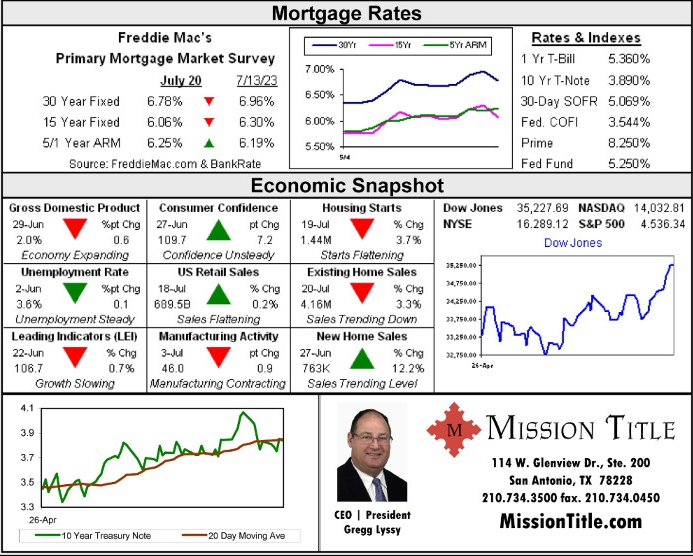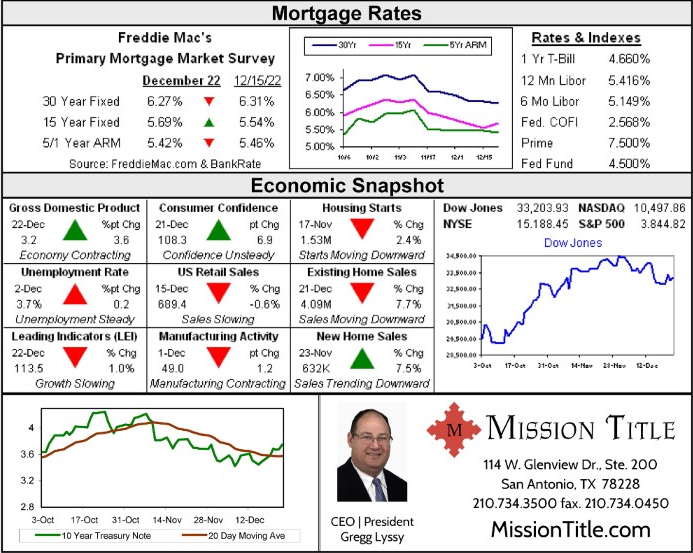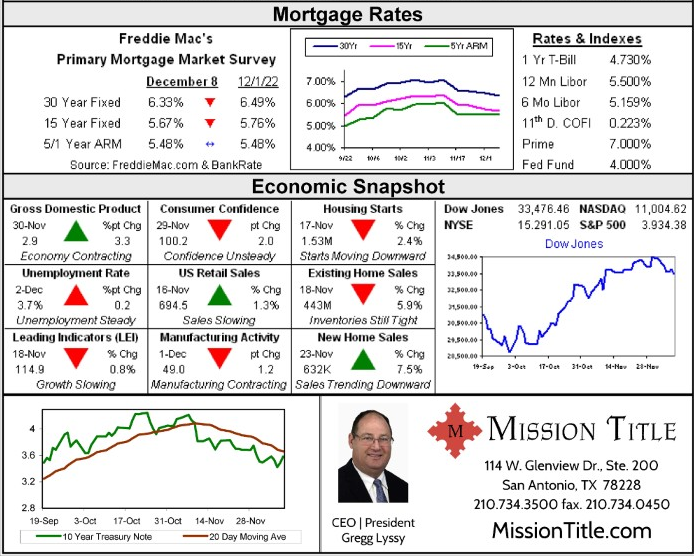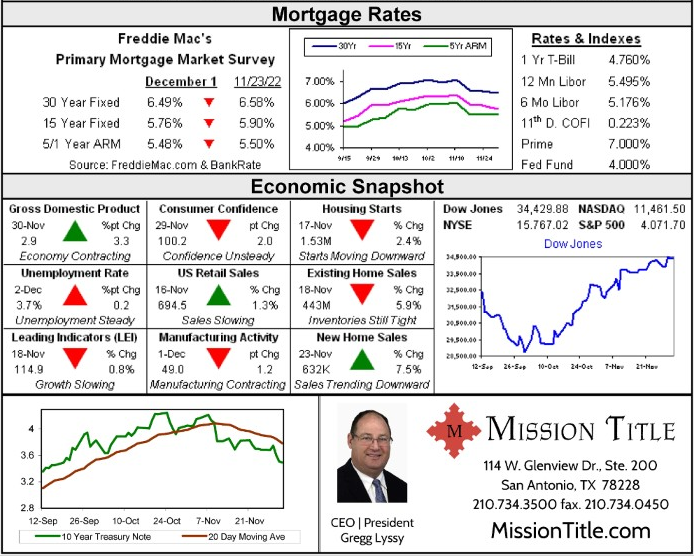For more than a half a century, the foundation of the American dream was obvious: a standalone house with a yard, probably in the suburbs and probably with a big driveway and garage.
It’s an image that has become ubiquitous, and one that was made possible in large part thanks to zoning regulations that set aside vast swaths of land for single family homes — and banned pretty much anything else.
But now as the most productive cities in the U.S. lose their middle class thanks to soaring housing prices, as homelessness turns California cities into hellscapes of despair, and as climate change increasingly looks like an existential threat, more and more people are wondering if the zoning regulations that birthed mile after mile of single family housing have finally failed us.
The New York Times delved into this issue Tuesday, noting that single family zoning has become “gospel” in the U.S. The piece also points out that it’s currently illegal to build anything but single family housing on 75 percent of the residential land in many American cities. That’s an astonishing statistic, but the percent is even higher in many fast-growing Sunbelt cities.
For example San Jose, the center of Silicon Valley, designates a whopping 94 percent of its land for single family zoning, according to the Times.
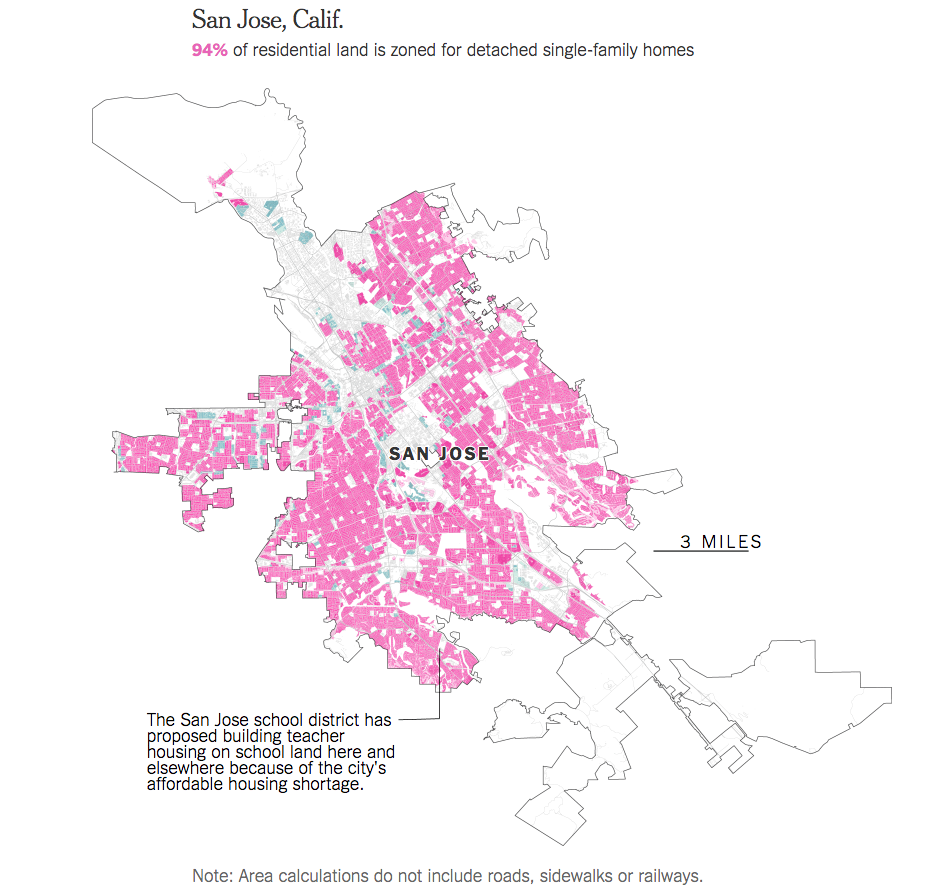
Credit: New York Times
Seattle, another tech hub, has zoned 81 percent of its residential land for single family homes. Los Angeles, Chicago, Portland and other large cities fall in the 70 to 80 percent range.
 Inspiration from unexpected sources: relentless leaders share their insights
What does it take to be a successful salesperson? Well, that depends on who you ask but for certain, these insights are not as simple as you may think READ MORE
Inspiration from unexpected sources: relentless leaders share their insights
What does it take to be a successful salesperson? Well, that depends on who you ask but for certain, these insights are not as simple as you may think READ MORE
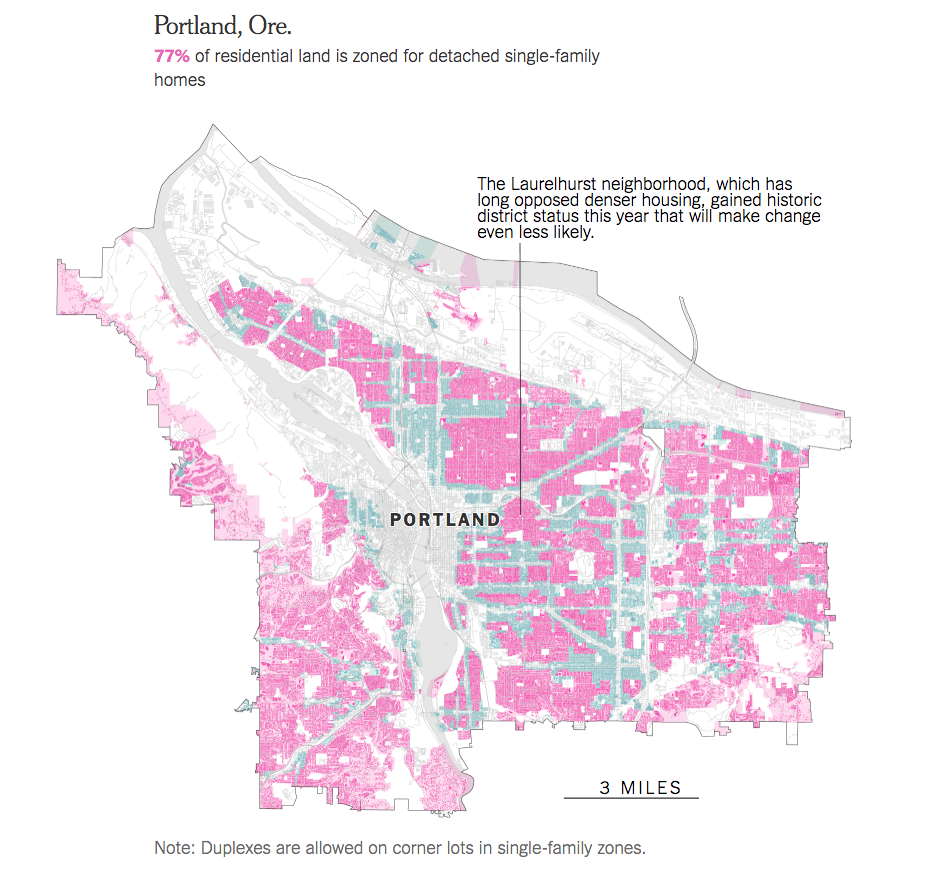
Credit: New York Times
For a long time, this situation looked great. People wanted single family homes and the market delivered. Zoning laws were also upheld by the U.S. Supreme Court in a 1926 decision.
(The history of zoning is also intertwined with the history of the racist practice of redlining, but that’s a topic for another post.)
But more recently, a number of elected officials, urban planning experts and ordinary people who can no longer afford housing have begun to question the wisdom of setting aside nearly an entire city for only one type of housing.
One of the problems, the Times notes, is that single family zoning limits the supply of housing, “forcing new supply into poorer, minority communities or onto undeveloped land outside of cities.” In other words, as the population grows people are forced to live farther and farther away. And that in turn creates problems, such as traffic and smog, that impact everyone.
Limiting the supply of housing also drives up prices. That’s great for existing homeowners (and their real estate agents!) in the short term, but it also means that vast numbers of people can’t afford to begin climbing the real estate ladder and end up decamping for more affordable regions. This is a well-documented phenomenon that is currently happening in California — a state that once epitomized the American dream.
It’s also worth noting that single family zoning doesn’t just prohibit massive, Manhattan-style skyscrapers. Rather, it also prevents smaller scale development like the kind that dominates Old World cities, and which Americans often pay to visit on vacation.
So, you couldn’t build anything remotely resembling this street in Amsterdam in most of the U.S. today.

Amsterdam. Single-family zoning prevents this kind of development in the U.S. today. | Credit: Getty Images
And this street in Paris would also be illegal for developers to attempt now in the vast majority of the U.S.

A street in Paris. This, too, would be illegal to build in most U.S. cities today. | Credit: Alexander Spatari and Getty Images.
The Times notes that there are also environmental issues that arise when cities only allow single family housing. Emissions obviously go up if everyone has to get around via car, and public transit also needs population density if it’s going to succeed.
Attached housing — so things like townhouses, duplexes and condos — are also quite a bit more energy efficient than a bunch of detached buildings.
webkitallowfullscreen mozallowfullscreen allowfullscreen
Overall, single family homes are not disappearing or at risk of becoming a minority share of the U.S. housing stock any time soon. But some regions are now working to at least diversify their options.
Most notably, city council members in Minneapolis voted last year to end single family zoning. Lawmakers in Oregon are currently considering a similar bill that would apply to cities with more than 25,000 people. And in California, state Sen. Scott Weiner has repeatedly proposed legislation that would allow denser housing, though his efforts have been stymied two years in a row now.
How exactly all of these efforts might play out remains to be seen, but one thing is certain: the pressure to change single family zoning in the U.S. is growing stronger and stronger.
How do you stay ahead in a changing market? Inman Connect Las Vegas — featuring 250+ experts from across the industry sharing insight and tactics to navigate threat and seize opportunity in tomorrow’s real estate market. Join more than 4,000 top producers, brokers and industry leaders to network and discover what’s next, July 23-26 at the Aria Resort. Hurry! Tickets are going fast, register today!
Thinking of bringing your team? There are special onsite perks and discounts when you buy tickets together. Contact us to find out more.
Source: click here












